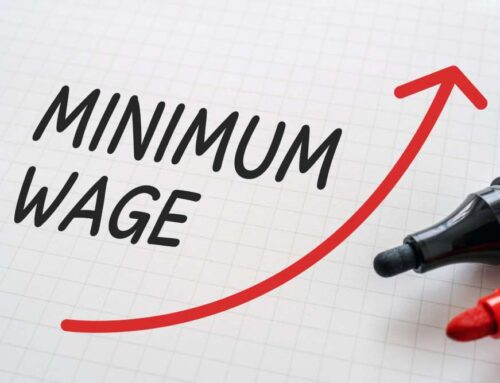What is Direct Discrimination in The Workplace?
Experiencing direct discrimination in the workplace can be a deeply distressing event or period of time in someone’s life. Many people have a hard time recognising discrimination, or understanding employment law itself. It’s important to get your head around what discrimination is, and how you can take action if this is something you’re experiencing.
There are different types of discrimination that people can experience in the workplace. These include direct discrimination, indirect discrimination, harassment, and victimisation; all of which need to be connected to a protected characteristic, which are covered in the Equality Act 2010.
In this article, we’re going to cover direct discrimination. We explain what it is, give an example, and provide guidance on what you can do if you think this is something you’ve experienced.
What is Direct Discrimination in the Workplace?
Direct discrimination is when someone with a protected characteristic is treated less favourably than other people (who do not possess the protected characteristic) are.
To directly discriminate means that someone is being treated differently, so if someone is under general poor management, and everyone is treated badly, this might not constitute discrimination. To make a legal claim for direct discrimination, you would need to identify someone who is being treated better than you. Furthermore, you would have to explain how this is related to a protected characteristic.
What is a Protected Characteristic?
Only certain characteristics are legally protected, which are covered in the Equality Act 2010. These are:
- Age
- Disability
- Gender reassignment
- Marriage and civil partnership
- Pregnancy and maternity
- Race
- Religion or belief
- Sex
- Sexual orientation
For something to be considered direct discrimination, it would need to be related to one of the characteristics listed above. For example, if the claim was related to something like height, this wouldn’t necessarily be considered discrimination. However, someone could argue that as men on average are taller than women, this could be connected to sex discrimination. However, this would come under indirect discrimination, rather than direct.
In any case, if you believe you are experiencing discrimination in the workplace, it’s always worth getting the support of a workplace discrimination lawyer.
An Example of Direct Discrimination
Gill does not get a promotion, whereas Jack does. Gill believes she’s been passed up on the promotion because she’s a woman, meaning she could potentially claim sex discrimination.
The employer or individual who’s accused will inevitably defend themselves. They may state that there were other reasons for the decision, such as Jack being more qualified than Gill. This is where many discrimination claims fail because there are usually several reasons for the decisions employers make. Pinpointing one decision based on illegal discrimination can be difficult.
However, the law puts the burden of proof on the employer. So, initially, when Gill raised her claim, she would have had to bring up some evidence. This could include times her manager has made sexist comments, or statistics on how men are promoted quicker than women in the organisation. In response, the employer would have to prove there were other reasons, such as Jack having better qualifications.
Inevitably, there will be considerable conflict between both parties, as both will have different versions of events.
Collecting Evidence
To give yourself the best chance when you raise a claim, it’s important to collect as much evidence as possible. Along with giving the reason for believing a decision has been made due to direct discrimination, collecting any third-party evidence can also be helpful. For example, carrying on from the example above, if Gill had any texts or emails that imply or demonstrated sex discrimination, this would be helpful for her case.
If the employee doesn’t have access to this information, as it is typically controlled by the employers, they can ask for relevant information to be disclosed. They can also make a subject access request or ask the employment tribunal to order information to be disclosed.
Taking notes of instances of discrimination, like dates, times, and what was said, can also be helpful to create a stronger claim against the company.
How are Direct Discrimination Claims Resolved?
Judging whether a direct discrimination claim will be successful can be difficult as there are many factors that will determine the outcome. Each case will be different in terms of complexity, and it can be difficult to guess the outcome. However, if there is a strong case for discrimination, this could result in bad publicity for the company.
How we Can Help
At Barrett and Co, we understand how distressing these cases can be and will act sensitively and collaboratively with you to ensure the best outcome. Our workplace discrimination lawyers can give you practical and actionable advice if you think you’ve been directly discriminated against.
If you’d like to discuss your circumstances with our experienced employment team, book a one-hour consultation with us for just £95 by using our booking form.





